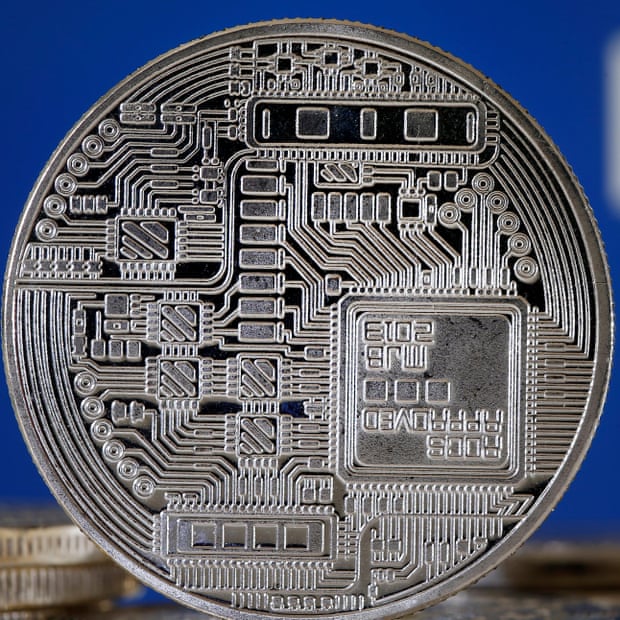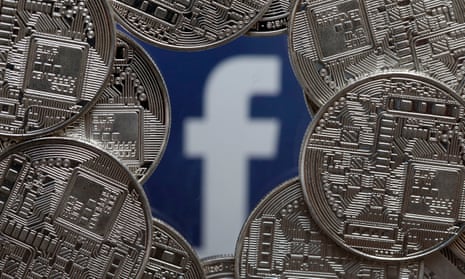Facebook and some of its corporate allies have decided that what the world really needs is another cryptocurrency, and that launching one is the best way to use the vast talents at their disposal. The fact that Facebook thinks so reveals much about what is wrong with 21st-century American capitalism.
In some ways, it’s a curious time to be launching an alternative currency. In the past, the main complaint about traditional currencies was their instability, with rapid and uncertain inflation making them a poor store of value. But the dollar, the euro, the yen, and the renminbi have all been remarkably stable. If anything, the worry today is about deflation, not inflation.
The world has also made progress on financial transparency, making it more difficult for the banking system to be used to launder money and for other nefarious activities. And technology has enabled us to complete transactions efficiently, moving money from customers’ accounts into those of retailers in nanoseconds, with remarkably good fraud protection. The last thing we need is a new vehicle for nurturing illicit activities and laundering the proceeds, which another cryptocurrency will almost certainly turn out to be.
The real problem with our existing currencies and financial arrangements, which serve as a means of payment as well as a store of value, is the lack of competition among, and regulation of, the companies that control transactions. As a result, consumers – especially in the US – pay a multiple of what payments should cost, lining the pockets of Visa, Mastercard, American Express, and banks with tens of billions of dollars of “rents” – excessive profits – every year. The Durbin Amendment to the 2010 Dodd-Frank financial-reform legislation curbs the excessive fees charged for debit cards only to a very limited extent, and it did nothing about the much bigger problem of excessive fees associated with credit cards.
Quick GuideWhat is Libra, Facebook's proposed cryptocurrency?
Show

What is Libra?
Facebook says Libra is a 'global currency and financial infrastructure' - a digital asset built by Facebook and powered by a new Facebook-created version of blockchain, the encrypted technology used by bitcoin and other cryptocurrencies. The name Libra comes from the basic Roman measurement of weight. The abbreviation lb for pound is derived from Libra, and the £ symbol originally comes from an ornate L in Libra.
Why is Facebook launching a cryptocurrency?
Facebook claims it wants to reach the 1.7 billion people around the world who do not have access to a bank account.
Who is in charge of Libra?
Facebook is likely to run into regulatory hurdles and antitrust concerns. The currency will be serviced by a collective of companies called the 'Libra Association'. It functions as what is known as a 'stablecoin', pegged to existing assets like the dollar or euro, in the aim of making it less subject to the volatility that many cryptocurrencies experience.
The Libra Association is described by Facebook as an independent, not-for-profit organisation based in Switzerland. Within the Libra Association will be a governing body called the Libra Association Council, comprised of a representative of each member of the association, which will vote on policy and operating decisions.
Facebook claims that although it created the Libra Association and the Libra Blockchain, once the currency is launched in 2020 the company will withdraw from a leadership role and all members of the association will have equal votes in governance of Libra. The companies who contributed a minimum of $10m(£8m) to be listed as founding members of the Libra Association include tech companies such as PayPal, Ebay, Spotify, Uber and Lyft, as well as financial and venture capital firms such as Andreessen Horowitz, Thrive Capital, Visa and Mastercard.
However in October 2019 several of the companies that had been backing the initiative announced that they were pulling out, including Visa, Mastercard, PayPal and Stripe.
How and when can I use it?
With regulators asking questions and backing companies dropping out, it is unclear now if Libra is still viable. Facebook's original plans were that users could download Calibra, a digital wallet, that would allow them to send the currency to anyone with a smartphone. It is no longer clear which countries the coin will launch in first, if at all, though Facebook had said 'almost anybody' in the world with a smartphone would be able to download the app.
Kari Paul in San Francisco
Other countries, such as Australia, have done a much better job, including by forbidding credit card companies from using contractual provisions to restrain competition, whereas the US supreme court, in another of its 5-4 decisions, seemed to turn a blind eye to such provisions’ anti-competitive effects. But even if the US decides to have a non-competitive second-rate financial system, Europe and the rest of the world should say no: it is not anti-American to be pro-competition, as Trump seems to have recently suggested in his criticism of the European commissioner for competition, Margrethe Vestager.
One might well ask: what is Facebook’s business model, and why do so many seem so interested in its new venture? It could be that they want a cut of the rents accruing to the platforms through which transactions are processed. The fact that they believe that more competition won’t drive down profits to near zero attests to the corporate sector’s confidence in its ability to wield market power – and in its political power to ensure that government won’t intervene to curb these excesses.
With the US supreme court’s renewed commitment to undermining American democracy, Facebook and its friends might think they have little to fear. But regulators, entrusted not just with maintaining stability, but also with ensuring competition in the financial sector, should step in. And elsewhere in the world, there is less enthusiasm for America’s tech dominance with its anti-competitive practices.
Supposedly, the new Libra currency’s value will be fixed in terms of a global basket of currencies and 100% backed – presumably by a mix of government treasuries. So here’s another possible source of revenue: paying no interest on “deposits” (traditional currencies exchanged for Libra), Facebook can reap an arbitrage profit from the interest it receives on those “deposits”. But why would anyone give Facebook a zero-interest deposit, when they could put their money in an even safer US Treasury bill, or in a money-market fund? (The recording of capital gains and losses each time a transaction occurs, as the Libra is converted back into local currency, and the taxes due seem to be an important impediment, unless Facebook believes it can ride roughshod over our tax system, as it has over privacy and competition concerns.)
There are two obvious answers to the question of the business model: one is that people who engage in nefarious activities are willing to pay a pretty penny to have their nefarious activities – corruption, tax avoidance, drug dealing, or terrorism – go undetected. But, having made so much progress in impeding the use of the financial system to facilitate crime, why would anyone – let alone the government or financial regulators – condone such a tool simply because it bears the label “tech”?
If this is Libra’s business model, governments should shut it down immediately. At the very least, Libra should be subject to the same transparency regulations that apply to the rest of the financial sector. But then it wouldn’t be a cryptocurrency.
Alternatively, the data Libra transactions provide could be mined, like all the other data that’s come into Facebook’s possession – reinforcing its market power and profits, and further undermining our security and privacy. Facebook (or Libra) might promise not to do that, but who would believe it?
Then there is the broader question of trust. Every currency is based on confidence that the hard-earned money “deposited” into it will be redeemable on demand. The private banking sector has long shown that it is untrustworthy in this respect, which is why new prudential regulations have been necessary.
But, in just a few short years, Facebook has earned a level of distrust that took the banking sector much longer to achieve. Time and again, Facebook’s leaders, faced with a choice between money and honouring their promises, have grabbed the money. And nothing could be more about money than creating a new currency. Only a fool would trust Facebook with his or her financial wellbeing. But maybe that’s the point: with so much personal data on some 2.4bn monthly active users, who knows better than Facebook just how many suckers are born every minute?










